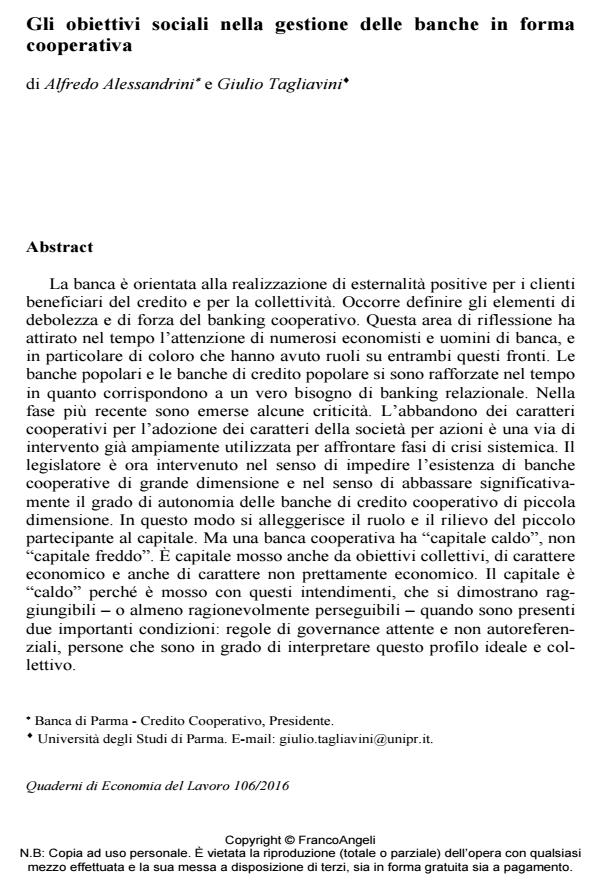Gli obiettivi sociali nella gestione delle banche in forma cooperativa
Journal title QUADERNI DI ECONOMIA DEL LAVORO
Author/s Alfredo Alessandrini
Publishing Year 2017 Issue 2016/106
Language Italian Pages 20 P. 121-140 File size 812 KB
DOI 10.3280/QUA2016-106007
DOI is like a bar code for intellectual property: to have more infomation
click here
Below, you can see the article first page
If you want to buy this article in PDF format, you can do it, following the instructions to buy download credits

FrancoAngeli is member of Publishers International Linking Association, Inc (PILA), a not-for-profit association which run the CrossRef service enabling links to and from online scholarly content.
The bank management is oriented towards the creation of positive externalities for clients and for the community. We must define the weaknesses and strengths of the cooperative banking. This topic attracted the attention of many economists and bank managers, and particularly of those who have had roles on both these fronts. The cooperative banks are now more solid as they serve a real need for relational banking. In the most recent phase, some problems have emerged. The abandonment of cooperative character for the adoption of corporation characters is an intervention way already used to deal with systemic crises. Recently, the Italian Government adopted a rule to prevent the existence of too big cooperative banks and to lower the autonomy degree of the small cooperative banks. The new regulation make the small shareholder quite irrelevant. A cooperative bank has "hot capital", not "cold capital". The capital is "hot" because shareholder has collective objectives, of economic nature but also of not purely economic nature. The capital is "hot" because it come from intentions that prove attainable - or at least reasonably achievable - when there are two important conditions: careful and modern governance rules, a bank management able to interpret this collective deal.
Alfredo Alessandrini, Gli obiettivi sociali nella gestione delle banche in forma cooperativa in "QUADERNI DI ECONOMIA DEL LAVORO" 106/2016, pp 121-140, DOI: 10.3280/QUA2016-106007